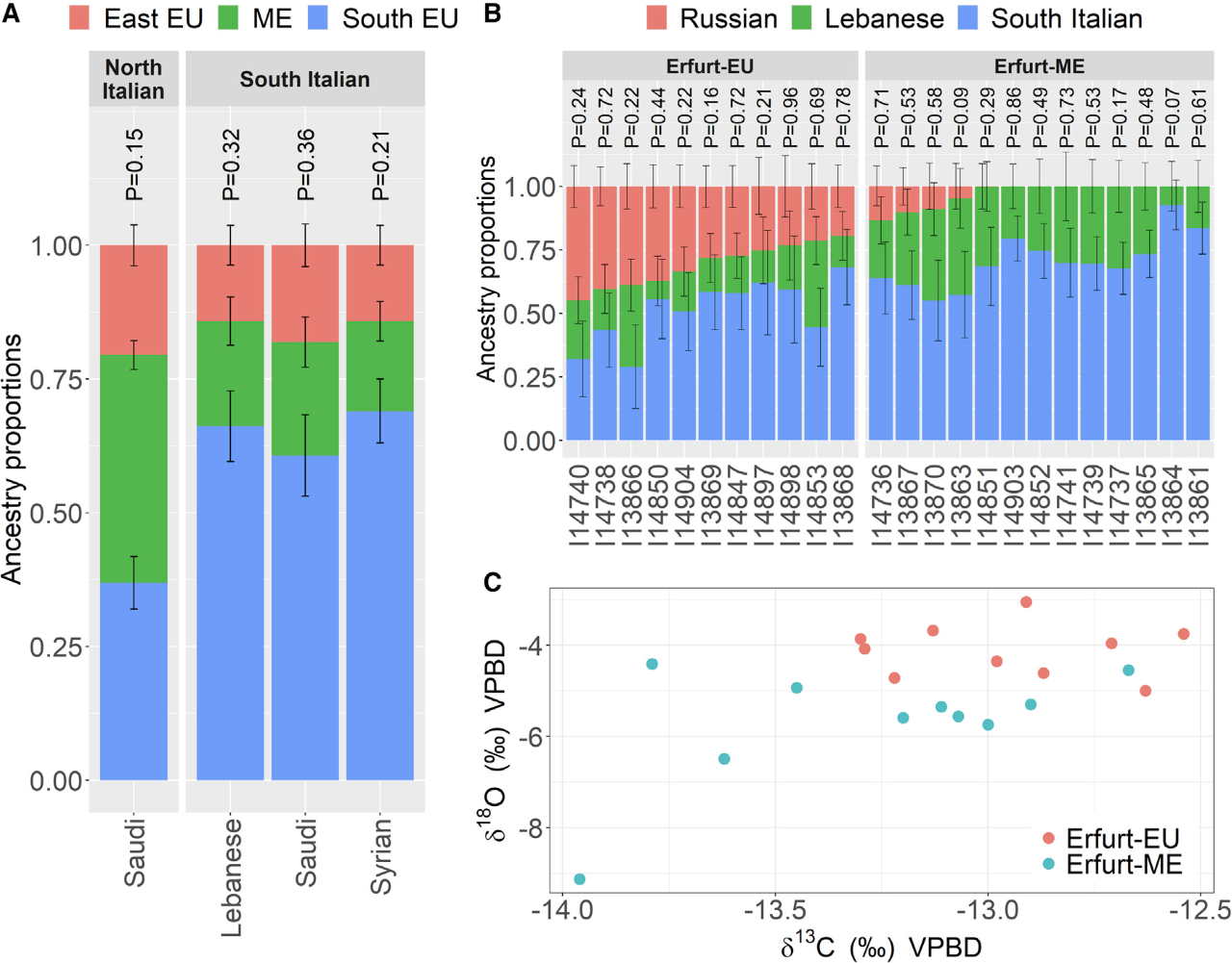Genome-Wide Data from Medieval German Jews Show that the Ashkenazi Founder Event Pre-Dated the 14th Century
Departmental News
Posted: Dec 05, 2022 - 10:00am
In a recent paper co-authored by Keith Prufer and graduate student Nadia Neff entitled Genome-Wide Data from Medieval German Jews Show that the Ashkenazi Founder Event Pre-Dated the 14th Century published in Cell, researchers report genome-wide data from 33 Ashkenazi Jews (AJ), dated to the 14th century, obtained following a salvage excavation at the medieval Jewish cemetery of Erfurt, Germany. The Erfurt individuals are genetically similar to modern AJ, but they show more variability in Eastern European-related ancestry than modern AJ. A third of the Erfurt individuals carried a mitochondrial lineage common in modern AJ and eight carried pathogenic variants known to affect AJ today. These observations, together with high levels of runs of homozygosity, suggest that the Erfurt community had already experienced the major reduction in size that affected modern AJ. The Erfurt bottleneck was more severe, implying substructure in medieval AJ. Overall, our results suggest that the AJ founder event and the acquisition of the main sources of ancestry pre-dated the 14th century and highlight late medieval genetic heterogeneity no longer present in modern AJ.
Genome-wide data was generated for 33 individuals whose skeletons were rescued from a late medieval Jewish cemetery in Erfurt, Germany. Medieval German Jews had similar genetic ancestry to modern Ashkenazi Jews but were more genetically heterogeneous, likely divided into two or more distinct groups. The medieval Jews showed evidence of an extreme founder event, including high levels of runs of homozygosity and distinctive genetic variants shared with modern Ashkenazi Jews.

